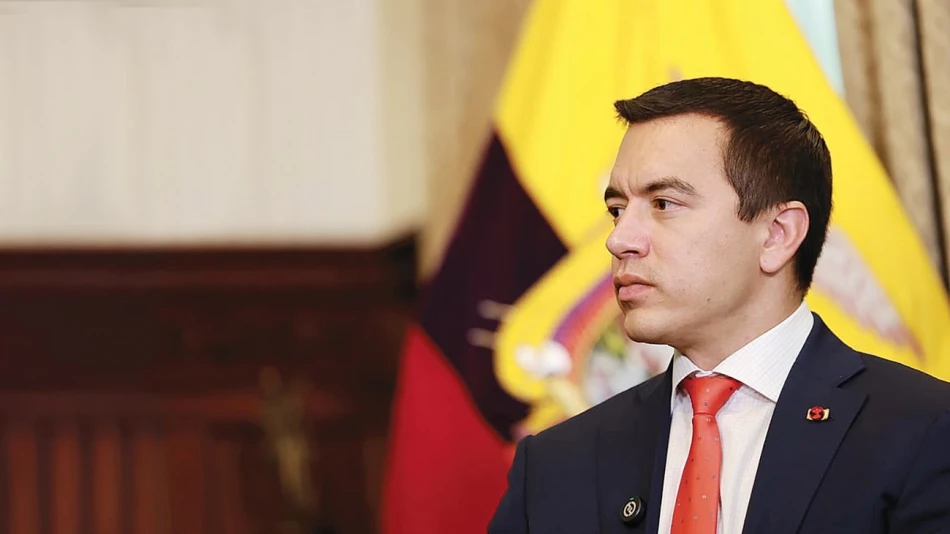
Ecuadorian President Narrowly Escapes Chocolate Poisoning Plot
Ecuador's President Daniel Noboa says someone tried to poison him with chocolate and sweets at a public event. Lab tests found three chemical substances in the treats, and Noboa believes the high concentration proves this was intentional. This marks the second assassination attempt reported by his government as indigenous groups stage widespread protests against his policies.
Noboa told CNN that the chemical levels were too high to be accidental. The president's claims come during a tense period for Ecuador, where indigenous organizations have been leading protests and road blockades since mid-September.
The demonstrations center on Noboa's decision to eliminate government subsidies for diesel fuel. Indigenous groups, who represent a significant portion of Ecuador's population, say this policy hurts their communities economically.
Earlier this month, the government also reported that gunmen fired shots at the president's vehicle. Officials blamed indigenous groups for that incident too.
Ecuador's largest indigenous organizations are spearheading the current unrest. These groups have historically played a major role in the country's politics and have successfully toppled previous governments through sustained protests.
The timing of these alleged assassination attempts raises questions about Ecuador's political stability. The country has struggled with economic challenges and social tensions, particularly around fuel subsidies that many citizens depend on but strain government finances.
For investors and regional observers, Ecuador's situation reflects broader tensions across Latin America between economic reforms and social stability. Fuel subsidies are expensive for governments but removing them often triggers significant public backlash.
The protests and alleged attacks on Noboa show how quickly political situations can escalate when governments implement unpopular economic policies. Indigenous movements in Ecuador have proven particularly effective at organizing resistance to government decisions they oppose.
Most Viewed News

 Sara Khaled
Sara Khaled






